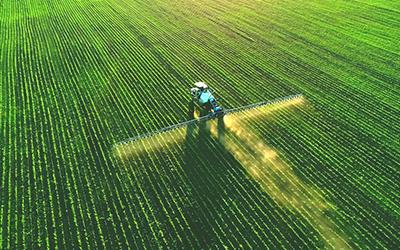
Global food demand & supply, before & after COVID-19
News Room Global food demand & supply, before & after COVID-19 As the novel Coronavirus rapidly spread across six continents, it resulted in several socioeconomic
Palm oil has often found itself in the eye of the storm of controversy for several reasons. As a result, it makes one wonder about questions like whether palm oil is fit for regular consumption or what are the social, economic, and environmental implications of using products that contain palm oil. The conflicting news and information can be confusing, and hence, here are all the facts that one needs to know about palm oil:
Palm oil is an edible vegetable oil derived from the fleshy fruit of palm trees (Elaeis guineensis). It should not be confused with palm kernel oil, which is extracted from the seeds of the fruit. While the palm tree is native to Southwest and West Africa, it has found widespread cultivation across Southeast Asia as well. Malaysia and Indonesia, in particular, account for 80 to 85% of the global palm oil supply.
Palm oil is generally semi-solid at room temperature and has a melting point of 35 degrees Celsius. Its popularity can be attributed to its inexpensive nature, along with large-scale availability. Interestingly, it features as a regular ingredient in multiple products, from food to cosmetics. Some common areas of application of palm oil include:
Palm oil is possibly one of the best vegetable oil available. The per capita oil production from palm trees is far superior to coconut or soybean oil. For instance, it can meet 35% of the global vegetable oil demand by occupying only 10% of the land. Furthermore, these plantations require fewer inputs. Most importantly, it is an attractive biofuel, which will offer relatively clean combustion and minimal emissions.
Then why does it attract global backlash to the point where the EU mulled over banning the popular biofuel and its subsidiaries?
The primary cause of controversy surrounds the ethical concerns arising out of palm oil’s negative impact on the environment.
For starters, developing countries have transformed their farmlands into monocropping industries to cash into the palm oil frenzy. To put this transformation in context – a study discovered that between 1990 and 2010, 9.6 million hectares of land had been converted into industrial palm oil farms in Malaysia, Indonesia, and Papua New Guinea. This rapid transformation of land can trigger an environmental shock.
On the other hand, local governments have allocated designated industrial palm tree estates to mitigate rampant palm tree cultivation. However, there has been significant encroachment outside these zones as the industry has inadvertently become a major driver towards deforestation. The senseless destruction of natural forests will cause an irreversible loss of biodiversity and reduction of carbon sinks. What makes the matter worse is that the “slash-and-burn” technique is still used for clearing forests, which adds to the existing carbon load.
Finally, another major cause of concern is the draining and burning of peatlands. Peatlands are highly efficient in sequestering and storing carbon dioxide. It not only acts as a CO2 sponge but also supports a rich ecosystem of flora and fauna. However, palm oil producers are draining the peatlands and burning the leftover foliage to cultivate neat rows of palm trees. Resultantly, the area that once stored CO2 ends up emitting the same into the atmosphere. It is believed that if palm oil farming continues at the current rate, it could result in the permanent loss of peatlands across Southeast Asia by 2030!
Clearly, palm oil brings with it a web of complexities. However, that does not mean that the world needs to switch to completely different vegetable oils. Even organizations like the WWF believe that boycotting palm oil is not a practical solution, and one needs to find ways to introduce sustainability in the palm oil production process.
The pursuit of finding this balance led to the formation of the Roundtable of Sustainable Palm Oil, or RSPO, in 2004. RSPO is a not-for-profit organization that connects several stakeholders involved in the palm oil manufacturing process. It also includes social and environmental NGOs to ensure that the guidelines dictate the highest standards of environmental and social concerns.
RSPO certified plantations cannot clear primary forests, fragile ecosystems, and regions having a high concentration of biodiversity. These plantations must also mitigate their environmental impact by protecting water sources and preventing soil erosion. They must also agree to pay minimum wage and gain consent from local communities before starting a plantation. Only when they meet these norms, do companies gain and retain the tag of “Certified Sustainable Palm Oil” (CSPO), which indicates that the product is as sustainable as possible.
To add further impetus to the initiative, the RSPO has more than 4000 global members belonging to different stages of the palm oil supply chain. This list includes reputable members like Nestle, Procter & Gamble, and Unilever, who are committed to producing or sourcing sustainable palm oil carrying the CSPO status.
Much like RSPO, local organizations like PONGO (Palm Oil and NGO) Alliance, Malaysian Palm Oil Board, Rainforest Alliance, and Hutan are also trying to reach at the grassroots level to make palm oil truly sustainable.
While palm trees may require moderate use of inputs, it does not mean that it can flourish without it. Given that the plant is a heavy feeder, it requires an adequate supply of micro and macronutrients delivered in a balanced form. To facilitate the blooming of fruit clusters, it primarily requires nitrogen and potash. However, the mineral composition will change as the plant grows and matures. Urea, muriate of potash, magnesium sulfate, ammonium sulfate, SSP (Single super phosphate), DAP (Diammonium phosphate), and rock phosphate are some of the commonest fertilizers used in palm tree cultivation.
Despite the COVID-19 pandemic, the palm oil industry has continued to register sustained growth. This trend makes it abundantly clear that the palm oil market has several takers, and there is no stopping that. Besides, given the advantages of palm oil, the only potential issue lies in the production and manufacturing aspects.
In this regard, international pressure and significant governmental action could pave the way for making palm oil the leading vegetable oil that can meet human requirements at the international level.

News Room Global food demand & supply, before & after COVID-19 As the novel Coronavirus rapidly spread across six continents, it resulted in several socioeconomic

News Room An Overview of Why Fertilizer is Important for Modern-Day Farming China’s average crop production has increased by six times in the last four

News Room Farming, beyond 2020 If farming intends to feed the global population, it would have to achieve the rate of growth as delivered by